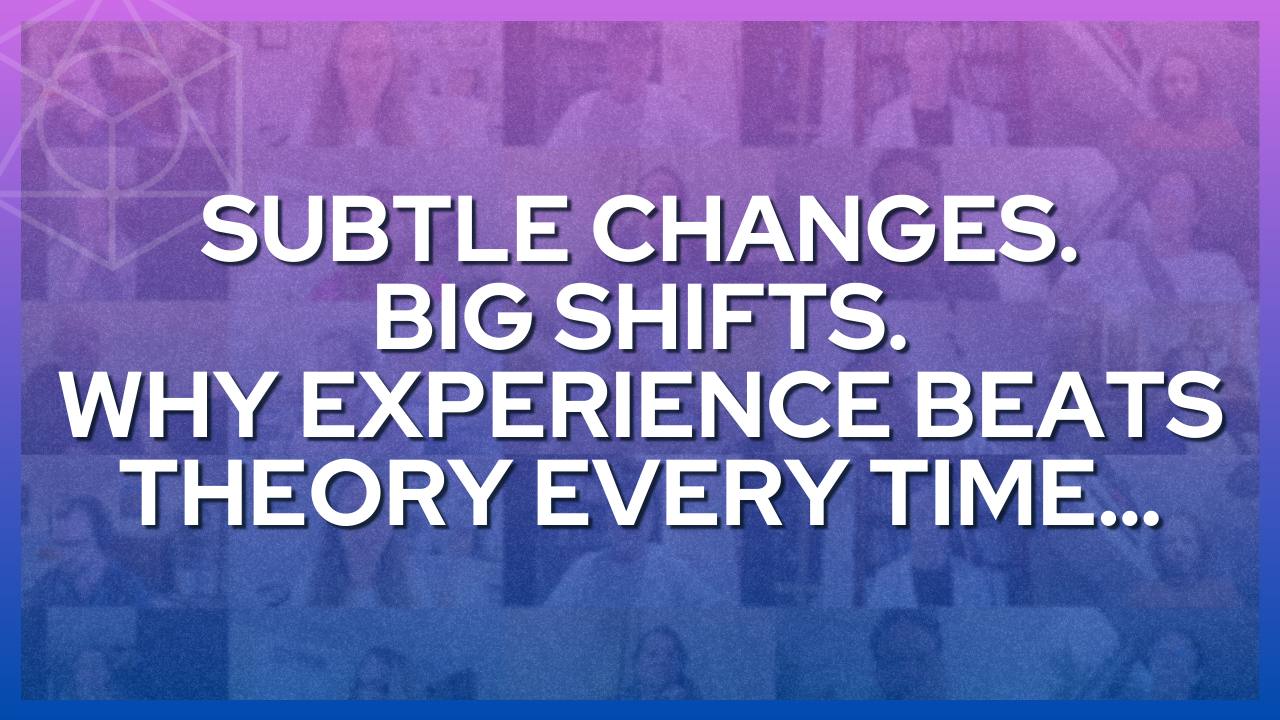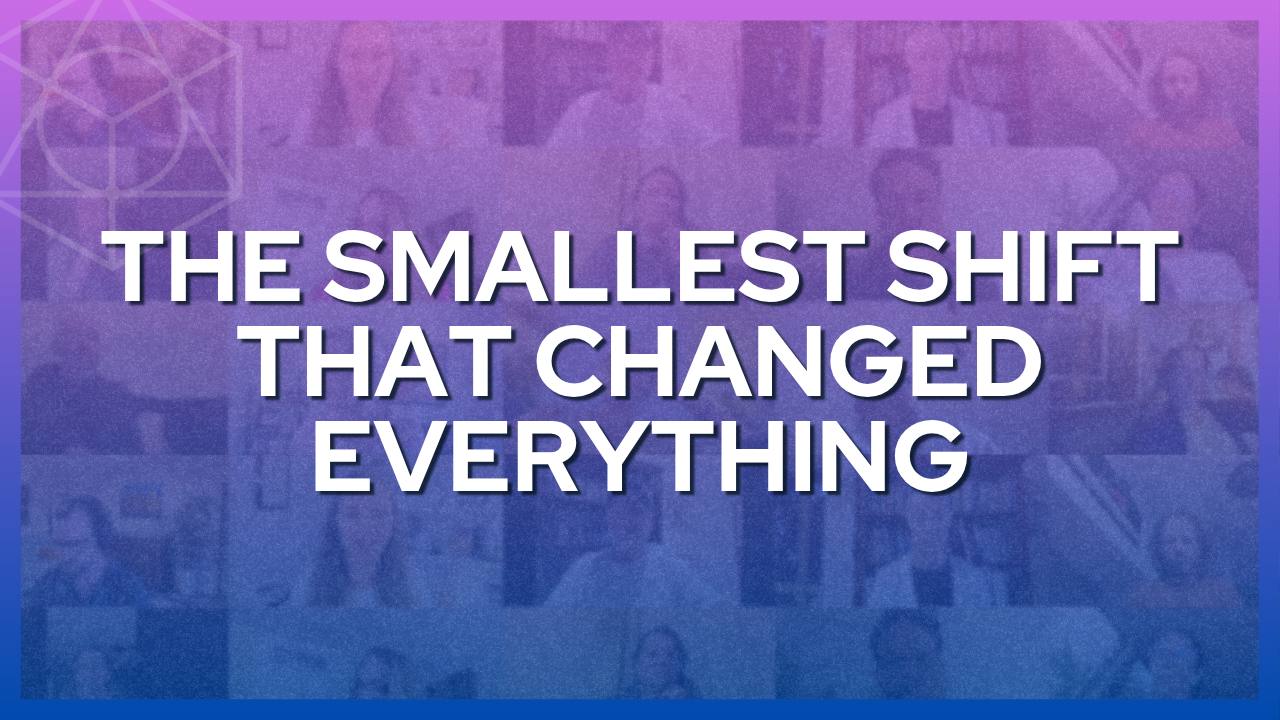Your Body Remembers Stress... Even After It’s Gone
When Stress Becomes the Way You Breathe
When we experience stress or trauma, our breathing patterns adapt for survival.
We brace. We breathe faster. Shallower. We tighten our bodies and hold our breath without even realizing it... Ready for anything.
In the moment… This is protective and usually necessary...
But if it becomes habitual…
Especially when stress lasts for days, weeks, or even years…
These patterns can quietly damage both the body and mind.
And here’s the part that most people don’t realize:
Even after the stress is over, your body can keep breathing like it's still in danger.
That’s because of something called state-dependent learning…
Your body learns to breathe during stress, and unless that learning is revisited, it can continue for life.
Let me share a personal example.
When I was late in my pregnancy, I was breathing in a stressed-out state…
Too much, too fast, feeling frustrated without really knowing why.

I began to feel moody, irritable, emotional, disconnected… and everyone around me told me, “That’s just part of pregnancy.”
But after giving birth, things didn’t get better.
I spiraled into postnatal depression.
Even once my hormones balanced, I was still on edge and short-tempered.
And for a while, I was starting to believe that maybe my personality was changing... and I wasn’t happy about it.
It wasn’t until years later, while studying Behavioral Breathing Science, that I realized:
My breath was stuck in a state of stress long after the stress had ended.
I had gotten used to feeling stressed... and thought it was just normal.
When I retrained my breathing habits, the moodiness began to disappear.
The emotional and physical tension I thought I had to live with… finally lifted.
That’s what Behavioral Breathwork is about.
Breathwork is not just about techniques or temporary relief...
It’s about understanding why a breathing pattern was formed in the first place…
Then gently interrupting the habit, and creating space for something new.
That’s why we teach the A.I.R. Framework:
Awareness. Intervention. Regulation.
It gives people a clear path to:
- Notice how their breath is behaving
- Interrupt patterns without force
- Relearn how to breathe in a way that supports clarity, calm, and emotional flexibility
This work changes lives.
And now… we need more people to help us share it.
If you love breathwork…
If you want to serve your community in a grounded, science-based way…
If you want to build a business helping others unlearn stress-based patterns and feel more like themselves again..
We’d love to welcome you into our next Behavioral Breathwork Facilitator Training.
Doors open soon, and early bird pricing will be offered to those on the waitlist.
In Gratitude,
Angie (& Shane) Saunders

Featured Insight of the Week
“Your Body Doesn't Forget How to Breathe Under Pressure… Until You Teach It To”
When the body is under stress, it adapts.
Sometimes in ways we don't notice… like a subtle shift in how we breathe.
We might start breathing faster, higher in the chest, or even holding our breath without realizing it.
If that pattern helps us cope, even once, the body remembers.
Not because it’s ideal…
But because it worked.
That’s the heart of behavioral breathing science:
We breathe the way we’ve lived…
And with awareness, we can begin to breathe the way we want to live.
This isn’t about fixing the breath with force or technique.
It’s about recognizing the pattern…
Relating it to how we feel…
And gently practicing something new…
Something more aligned with the moment.
Because breathing isn’t just a function.
It’s a behavioral reflection of how we’ve learned to survive.
And like any learned behavior…
It can be unlearned…
And re-learned.
That’s how we breathe for a better experience of life.

Training Recap: Behavioral Breathwork Facilitator Training
Focus: Group Breathwork Facilitation
This week, we explored what it means to hold space for many, while still seeing the individual.
From setting the tone to reading the room, our facilitators learned how to guide group sessions that are both structured and adaptive—supporting each person’s journey without forcing a one-size-fits-all approach.
We introduced the anatomy of a group session, shared real-world tips for regulating collective energy, and offered tools like run sheets, waiver templates, and feedback forms to help facilitators feel confident and prepared.
Group facilitation isn’t about performance... it’s about presence.
And when done well, it becomes a powerful mirror for change.
Looking to guide breathwork in a way that’s grounded, adaptable, and backed by behavioral science?
Join the waitlist for our next cohort of the Behavioral Breathwork Facilitator Training.
Doors open soon, and early bird pricing will be offered to those on the waitlist.

Join The Waitlist For The Next Facilitator Training

Want to Breathe With Us In Person?
We’re planning two powerful in-person experiences and we’d love to know if you’re interested.
You’ll have the chance to join us for:

Both events blend the in person breathwork experience, practical science, and real-time transformation… for your nervous system, your facilitation practice, and life.
Let us where you’d love to join us!

Masterclass Spotlight: Breathing, Respiration & Pregnancy
What if many of the symptoms we associate with pregnancy…
like brain fog, mood swings, fatigue, and nausea…
Aren’t just “normal”… but actually the result of how we breathe?
In this powerful Masterclass, Dr. Peter Litchfield breaks down the difference between breathing and respiration, and explains how state-dependent learning can lock women into dysfunctional breathing patterns long after pregnancy has ended.
“Pregnancy doesn’t cause all these symptoms, overbreathing does. And the body learns to keep breathing that way, even when the stress is gone.”
—Dr. Peter Litchfield

You’ll learn how carbon dioxide loss during pregnancy can affect brain function, emotional regulation, and even the health of the fetus… and why most approaches to prenatal breathing are misinformed or incomplete.
This session is a must-watch for anyone working with women, pregnancy, or stress-based breathing issues.
You’ll learn how carbon dioxide loss during pregnancy can affect brain function, emotional regulation, and even the health of the fetus… and why most approaches to prenatal breathing are misinformed or incomplete.
This session is a must-watch for anyone working with women, pregnancy, or stress-based breathing issues.
Watch The Full Masterclass Here

Tools We Use: Meet the CapnoTrainer GO
Your breathing patterns reveal more than you think.
Real change starts with real data.

The CapnoTrainerGO is a powerful tool that measures your exhaled CO₂ in real time, giving you immediate insight into how your breathing is affecting your body, mind, and performance. It’s a simple, non-invasive way to track and retrain your breathing—based not on guesswork, but on real data.
Whether you’re a wellness practitioner or just breath-curious, this device can help you or your clients understand and transform dysfunctional breathing habits at the source.
Learn How The CapnoTrainer GO Works

Exciting News!
A New Collaboration with the
Professional School of Behavioral Health Sciences

We’re excited to share that I (Angie) have taken on a new role as Director of Admissions at the Professional School of Behavioral Health Sciences.
Shane and I have worked closely with Dr. Peter Litchfield and Sandra Reamer for over five years, translating their research into practical programs that are now being used in clinical, coaching, and wellness contexts.
This new partnership brings together science, breath, and behavioral health in a more accessible and applied way.
More updates are coming soon.






Responses